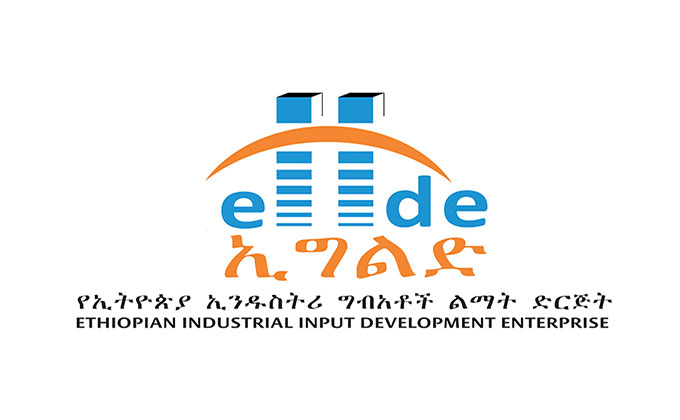
Sunday with Eden | Oct 02,2021
Mar 11 , 2023
By Olivia White , Jonathan Woetzel
The widespread disruption to supply chains caused by the pandemic and Russia's invasion of Ukraine has prompted a new narrative about globalization in retreat. However, considering the full picture of flows suggests that global integration is here to stay and that knowledge and know-how are now an important part of the way forward, write Olivia White, a director of the McKinsey Global Institute, and Jonathan Woetzel, a McKinsey senior partner, in this commentary provided by Project Syndicate (PS).
Global trade still conjures images of giant container ships. But our world has changed. Transporting physical goods across borders is no longer the only or even the primary, driving force behind global integration. Instead, we are increasingly connected by intangibles, services, and talent flows. From the cloud-based applications companies use to manage customer relations to the research that led to the development of the COVID-19 vaccines, knowledge is binding our world together.
As we show in a new report, global flows associated with know-how have taken the baton from manufactured goods, resources, and capital – the primary drivers of interconnection until the late 2000s. Between 2010 and 2019, international trade in services, intellectual property, and education grew twice as fast as trade in goods. Cross-border data flow – the fuel of the digital era – has exploded, increasing at an annual rate of 45pc. Trade in services, knowledge-intensive categories – including professional, government, IT, and telecommunications services – are growing most rapidly.
Speculation that the world is deglobalising misses the mark: Global integration is evolving, not retreating, in the digital era. Every major world region imports 25pc or more (in value-added terms) of at least one important type of resource or manufactured good that it needs, and often much more.
The spread of intangible know-how has a palpable influence on many sectors. In particular, research and development now involve much more cross-border cooperation. In the automotive sector, the share of research and development occurring in offshore locations rose from five percent to 15pc between 2000 and 2018. The same is true of the pharmaceutical industry: Multinationals based in Europe and Asia use research and development performed outside of their home countries for more than half of innovation that produces new patents.
Likewise, highly qualified talent – one of the most important inputs across sectors – is globally mobile. Consider the semiconductor industry. An estimated 40pc of high-skill semiconductor researchers working in the United States were born in other countries, and foreign-born workers contribute to over 80pc semiconductor patents.
Multinational corporations are pivotal players in world trade, accounting for about two-thirds of global exports. They are overrepresented in sectors where intangibles are the most relevant. They account for about 80pc of exports in some of the most innovative industries, including transport, pharmaceuticals, and electronics.
In knowledge-intensive global value chains, intangibles create highly scalable assets that can be deployed globally at low marginal cost. This, in turn, enables large economies of scale and a self-reinforcing cycle of higher returns, concentrating market share and performance in a small number of superstar firms that drive a disproportionate amount of economic activity. Hence, a close correlation between dominant multinationals and intangibles.
Multinationals have the opportunity to unlock new sources of competitive advantage through increased investment in intangibles, particularly those with the potential to flow across borders. One example is MELLODY, a public-private partnership coordinated by the AI biotech company Owkin. The project uses decentralized data from 10 leading pharmaceutical companies to tweak models that predict molecule behaviour, hoping to accelerate the drug discovery process. In some cases, investment in intangibles could enable multinationals to implement new business models in sectors that were previously less driven by knowledge flows.
According to research from Mackenzie Global Institute (MGI), large companies are well positioned to outperform their peers when they master the deployment of intangibles investment: Firms in the top quartile for growth in gross value added invest 2.6 times more in intangibles than companies in the bottom two quartiles. This suggests new sources of growth for companies grappling with growing economic and geopolitical uncertainty.
But there is room for all on the fast-moving intangibles train, from the largest multinational corporations to the smallest micro businesses, which can have a cross-border presence thanks to digital technology.
Firms on the hunt for growth opportunities would also do well to consider trade in services, which seem poised to deepen and expand. More economies are transitioning to services, and there is much to gain from further liberalization, as trade barriers affecting most services are two or three orders of magnitude higher than those for goods. Moreover, further technological advances could make these flows more seamless – the remote everything of the pandemic era forced companies to provide services virtually, a practice that has become the norm for many services.
The widespread disruption to supply chains caused by the pandemic and Russia's invasion of Ukraine has prompted a new narrative about globalization in retreat. However, considering the full picture of flows suggests that global integration is here to stay and that knowledge and know-how are now an important part of the way forward. Firms will need to reconfigure value chains to capitalize on the growth potential in services, intangibles, and talent.
PUBLISHED ON
Mar 11,2023 [ VOL
23 , NO
1193]

Sunday with Eden | Oct 02,2021

Viewpoints | Jan 19,2024

Viewpoints | Aug 12,2023

Fortune News | Jul 15,2023

Fortune News | Sep 08,2019

Editorial | May 28,2022

Fortune News | Mar 21,2020

Radar | May 13,2023

Commentaries | Dec 17,2022

Viewpoints | Apr 20,2024

Photo Gallery | 175759 Views | May 06,2019

Photo Gallery | 165977 Views | Apr 26,2019

Photo Gallery | 156374 Views | Oct 06,2021

My Opinion | 136844 Views | Aug 14,2021

Dec 22 , 2024 . By TIZITA SHEWAFERAW
Charged with transforming colossal state-owned enterprises into modern and competitiv...

Aug 18 , 2024 . By AKSAH ITALO
Although predictable Yonas Zerihun's job in the ride-hailing service is not immune to...

Jul 28 , 2024 . By TIZITA SHEWAFERAW
Unhabitual, perhaps too many, Samuel Gebreyohannes, 38, used to occasionally enjoy a couple of beers at breakfast. However, he recently swit...

Jul 13 , 2024 . By AKSAH ITALO
Investors who rely on tractors, trucks, and field vehicles for commuting, transporting commodities, and f...

Oct 18 , 2025
The political establishment, notably the ruling party and its top brass, has become p...

Oct 11 , 2025
Ladislas Farago, a roving Associated Press (AP) correspondent, arrived in Ethiopia in...

Oct 4 , 2025
Eyob Tekalegn (PhD) had been in the Governor's chair for only weeks when, on Septembe...

Sep 27 , 2025
Four years into an experiment with “shock therapy” in education, the national moo...

Oct 18 , 2025 . By NAHOM AYELE
In a sweeping reform that upends nearly a decade of uniform health insurance contribu...

A bill that could transform the nutritional state sits in a limbo, even as the countr...

Oct 18 , 2025 . By SURAFEL MULUGETA
A long-planned directive to curb carbon emissions from fossil-fuel-powered vehicles h...

Oct 18 , 2025 . By BEZAWIT HULUAGER
Transaction advisors working with companies that hold over a quarter of a billion Bir...